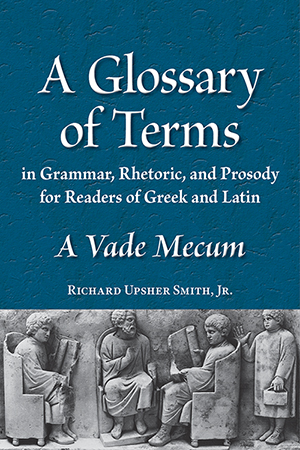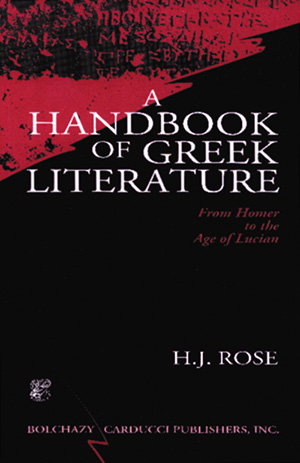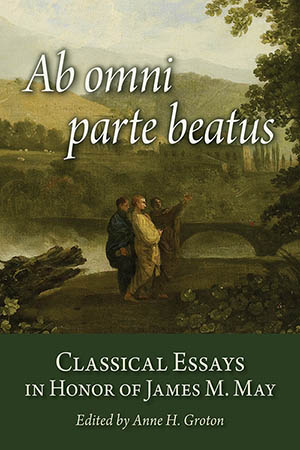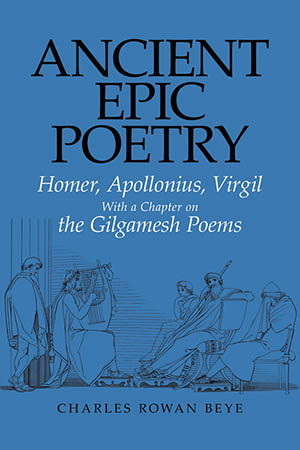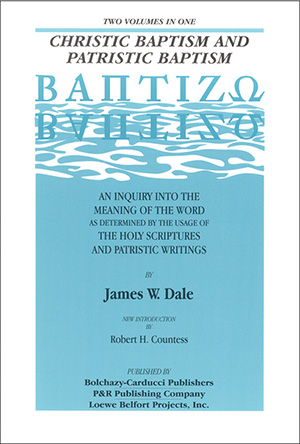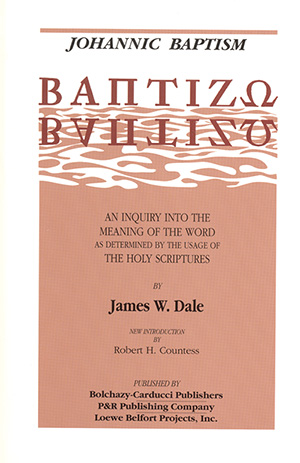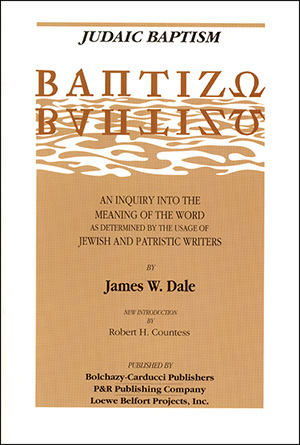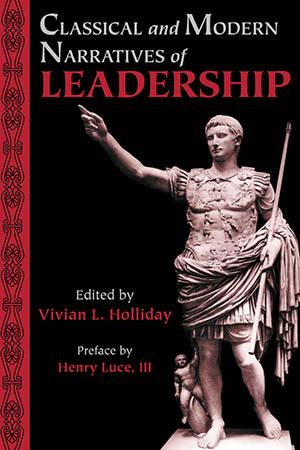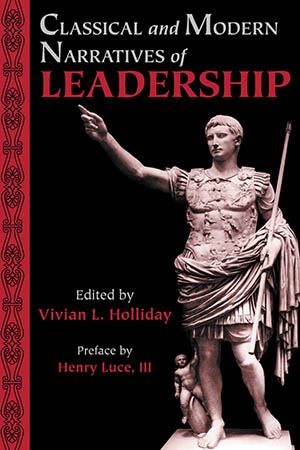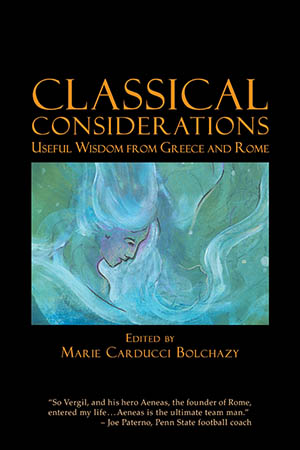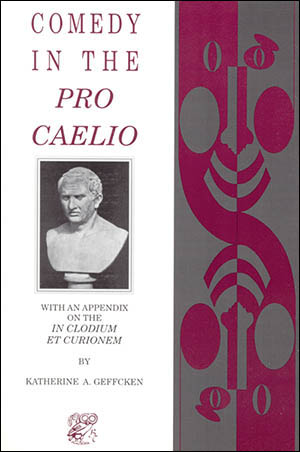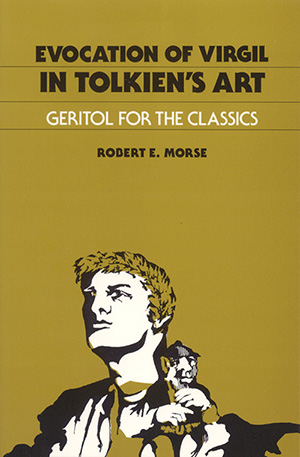A Glossary of Terms in Grammar, Rhetoric, and Prosody for Readers of Greek and Latin: A Vade Mecum
- Author: Richard Upsher Smith, Jr.
- 7591
- 978-0-86516-759-9
- 140
This book is a glossary of terms in grammar, rhetoric, and prosody that students of Greek and Latin commonly encounter in their first three years of study. While English grammar is the focus the links with Greek and Latin grammar are explained and some Greek and Latin constructions that do not occur in English are defined.
A Handbook of Greek Literature: From Homer to the Age of Lucian
- Author: H.J. Rose
- 3219
- 978-0-86516-321-8
- Paperback
- 464
Ab omni parte beatus: Classical Essays in Honor of James M. May
- 8431
- 978-0-86516-843-5
- Bolchazy-Carducci
In this Festschrift colleagues and former students of James M. May, Professor of Classics at Saint Olaf College, join forces to honor him on the occasion of his retirement. The book’s Latin title, Ab omni parte beatus, “blessed from every perspective” (a recast of Horace, Odes 2.16.27–28), suggests the wide sweep of Jim May's accomplishments and the far-flung success he has enjoyed in his forty-year career as teacher, scholar, and administrator; it also alludes to the excellence he displays in every aspect of his life.
Ancient Epic Poetry: Homer, Apollonius, Virgil With a Chapter on the Gilgamesh Poems
- Author: Charles Rowan Beye
- 6072
- 978-0-86516-607-3
- Paperback
- 318
Charles Rowan Beye's critically acclaimed interpretive introduction to the epic poetry and poets of Ancient Greece, Rome, and Assyria is here reprinted in an expanded second edition with a new preface, new chapter on Gilgamesh, and an Appendix of Further Reading 1993–2005.
Baptizo: Christic Baptism and Patristic Baptism: An Inquiry into the Meaning of the Word
- Author: James W. Dale
- 2638
- 978-0-86516-263-1
- Paperback
- 688
In the 19th century, Dr. James W. Dale, a Presbyterian minister, embarked on a scholarly project that proved to be the most exhaustive study ever undertaken on the word "baptism." Aiming at a contextual understanding of the word, Dr. Dale meticulously examined its use in a wide range of historical documents, and his analysis is a masterpiece of lexicographical scholarship.
Baptizo: Johannic Baptism: An Inquiry into the Meaning of the Word
- Author: James W. Dale
- 259X
- 978-0-86516-259-4
- Paperback
- 428
In the 19th century, Dr. James W. Dale, a Presbyterian minister, embarked on a scholarly project that proved to be the most exhaustive study ever undertaken on the word "baptism." Aiming at a contextual understanding of the word, Dr. Dale meticulously examined its use in a wide range of historical documents, and his analysis is a masterpiece of lexicographical scholarship.
Baptizo: Judaic Baptism: An Inquiry into the Meaning of the Word
- Author: James W. Dale
- 2476
- 978-0-86516-247-1
- Paperback
- 400
In the 19th century, Dr. James W. Dale, a Presbyterian minister, embarked on a scholarly project that proved to be the most exhaustive study ever undertaken on the word "baptism." Aiming at a contextual understanding of the word, Dr. Dale meticulously examined its use in a wide range of historical documents, and his analysis is a masterpiece of lexicographical scholarship.
Classical and Modern Narratives of Leadership
- Editor: Vivian L. Holliday
- 4797
- 978-0-86516-479-6
- Paperback
- 168
From Pericles to the Emperor Augustus and on to George Bush, Classical and Modern Narratives of Leadership invites the reader to view leaders not only as the narrators of their own stories but also the stories of leaders and followers in every community.
Classical and Modern Narratives of Leadership
- Edited: Vivian L. Holliday
- 4789
- 978-0-86516-478-9
- Hardcover
- 168
From Pericles to the Emperor Augustus and on to George Bush, Classical and Modern Narratives of Leadership invites the reader to view leaders not only as the narrators of their own stories but also the stories of leaders and followers in every community.
Classical Considerations: Useful Wisdom from Greece and Rome
- Editor: Marie Carducci Bolchazy
- 6188
- 978-0-86516-618-9
- Paperback
- Bolchazy-Carducci Pub.
- 136
The ancients knew that wisdom comes from sharing ideas with each other and with those who have gone before. This book is such a sharing: 53 quotations from ancient Greek and Latin authors, with English translations and accompanied by a brief essay, poem, or explanation of context. Contributors to Classical Considerations are a richly diverse group: classicists, reporters, students, professors, teachers, a psychiatrist, a judge, Vietnam veterans, a publisher, a minister, and a football coach. They show how the words of the ancients have connected with their own lives and understandings of the world. Themes considered include fate, character, art, war, redemption after suffering, and time.
Comedy in the Pro Caelio
- Author: Katherine A. Geffcken
- 2875
- 978-0-86516-287-7
- Paperback
- 100
Reprint of the 1973 E. J. Brill edition, with an appendix on the In Clodium et Curionem
Evocation of Virgil in Tolkien's Art: Geritol for the Classics
- Author: Robert E. Morse
- 1763
- 978-0-86516-176-4
- Paperback
- Bolchazy-Carducci Publishers, Inc.
- 76
In his Preface, Robert Morse states that both Vergil and Tolkien present myth as an aspect of an historical continuum. For these authors, myth does not seem to represent a falsehood, but rather it seems to narrate a record of experience from which humanity learns. Thus, myth is...a form of memory.

